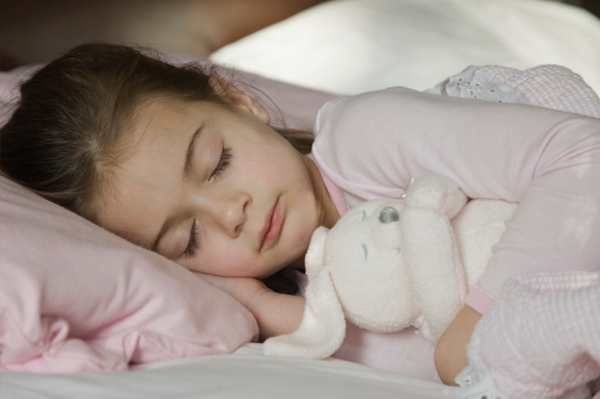Getting Enough Sleep for You and Your Child
 American College of Pediatricians 5 December 2017
American College of Pediatricians 5 December 2017
Family First Comment: How’s your family doing?
Have you ever heard the saying, “Early to bed, early to rise, makes a man healthy, wealthy and wise”? It is well established through research that much of our family’s well-being and success depends on getting a decent amount of shut-eye every night.
How much Sleep Do We Need?
From the American Academy of Sleep Medicine (AASP):
- Infants age 4 to 12 month need 12-16 hours a day, including naps
- Toddlers age 1-2 …………………….11-14 hours of sleep a day, including naps
- Children age 3-5 …………………….10-13 hours a day, including naps
- Children age 6-12…………………… 9-10 hours
- Teenagers 13-18 ……………………. 8-10 hours a day,
- Adults ……………………………….7 or more hours a day, varying upon the individual
According to the AASP, 25-50% of preschool children do not get enough sleep and lack of regular bedtime and insufficient sleep in young children leads to problems with cognitive function, behavior, hyperactivity, being overweight or obese, and increases the likelihood of needing special education.
Sleep quality
Not only the amount of sleep is important, but also what kind of sleep you receive. Signs of poor sleep quality include
- tiredness even with plenty hours of sleep,
- waking up frequently in the middle of the night, and
- having trouble breathing during sleep (a symptom of sleep disorder).
Between 1 and 20% of preschool children have sleep-disordered breathing, like sleep apnea or snoring (Bonuck, et.al. 2016). More and more children are being prescribed medication for insomnia, with the largest amount being for children with psychological disorders (American Academy of Sleep Medicine, 2010).
A study in 2008 found that 73.3 percent of school-age children who had ADHD also had sleep problems and 44.8 percent had problems that were on a moderate to severe level. Further studies also found that children with ADHD were more likely to have some kind of sleep disorder such as heavy snoring or sleep apnea (American Academy of Sleep Medicine, 2008).
How do Electronics Affect Sleep?
Our bodies receive important signals from sunlight. Artificial lights that are similar to sunlight can cause issues with falling asleep, sleep quality, and alertness during the day. These types of lights are lights with high luminescence and blue-rich lights, which includes electronic devices like
- a tablet,
- smart phones,
- computer and TV screens, and
- chargers.
Bright blue lights interfere with the release of melatonin, a chemical that helps the body to sleep.
It is best to turn off electronics with bright light an hour before bedtime and keep them out of the room during the night.
What Else Can Parents Do to Promote Optimal Sleep?
- Create a bedtime routine. Bedtime routines may consist of calming activities to help signal to a child that it is time for sleep. A relaxing bath, reading books, lotion, singing song, brushing teeth, praying are activities you might consider in a bedtime routine. A large study found that children with bedtime routine were more likely to sleep through the night, fall asleep quickly, and sleep longer.
- Establish a regular bedtime sometime before 9 pm. Keep the same times for waking up and going to sleep, even on weekends. Keep room dark, quiet, and relatively cool. Some children sleep better with a white noise in the background. Avoid large meals and caffeine before bedtime. Exercise during the day has been shown to improve quality sleep.
For more information on improving sleep quality for kids:-
- Is your child afraid of the dark? 5 tricks to make bedtime sweet – ACPeds blog post
- Updated Sleep Guidelines, Headaches in Children and Teens, Guiding Children Through Life – ACPeds Parent Talk Newsletter
- Parent Tech Use, Sleep & Obesity, ADHD on the Rise – ACPeds Parent Talk Newsletter
-







